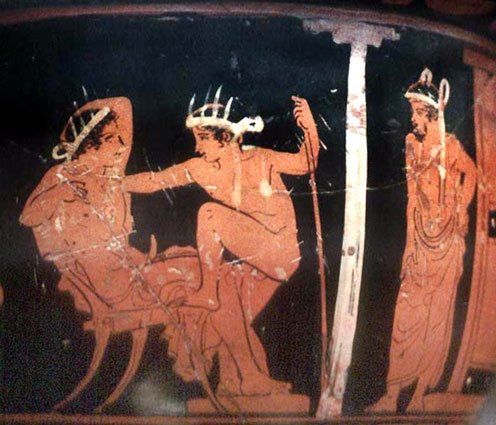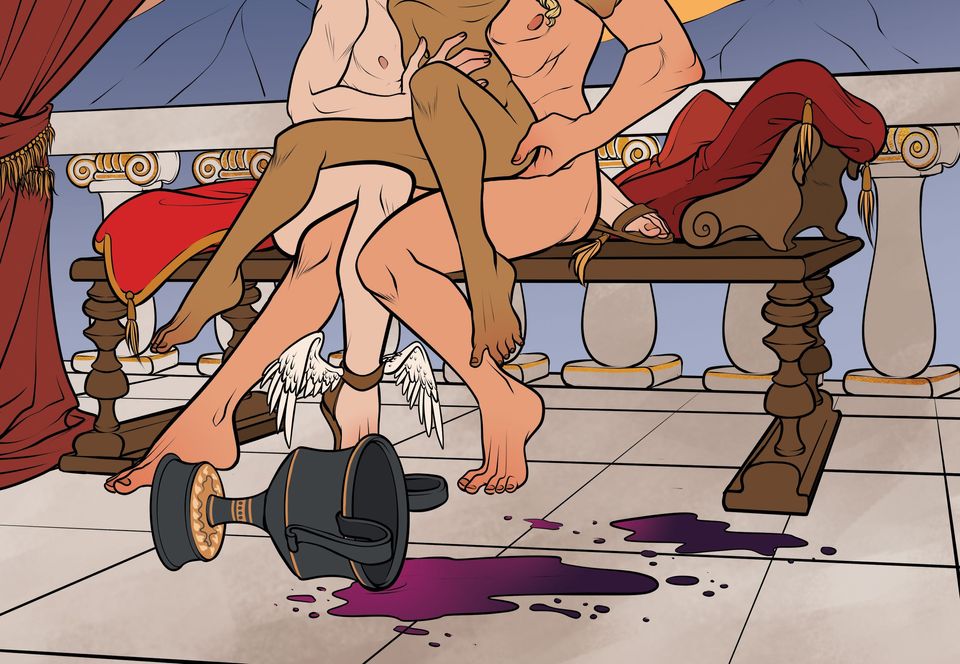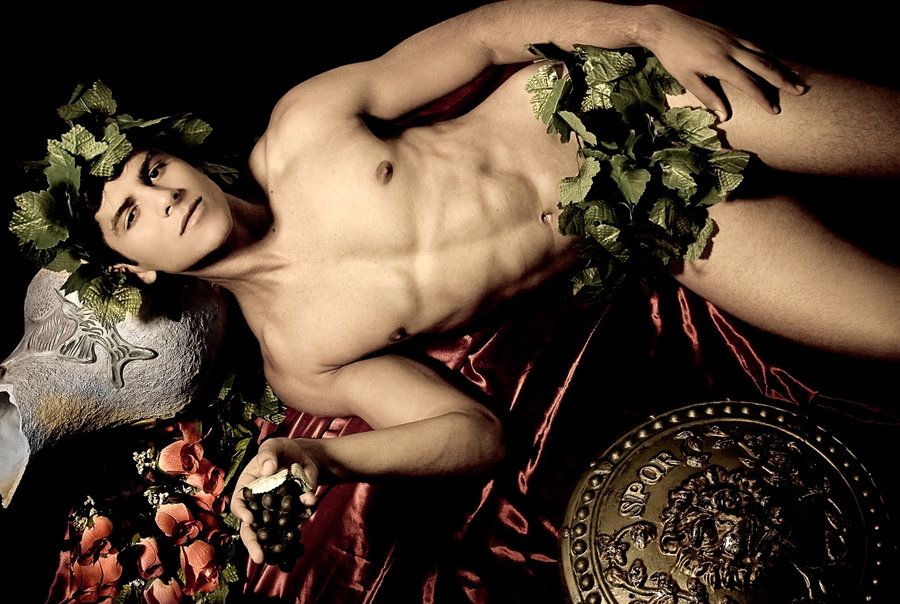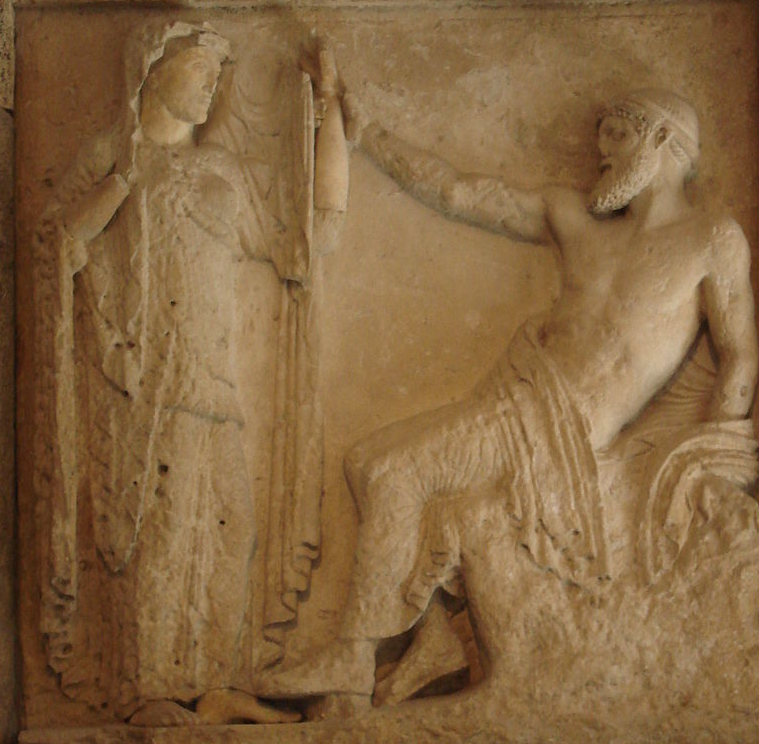Same Sex Love in Ancient Literature Quotes

This Pride Month, I wanted to share quotes from ancient works that unambiguously talk about romantic or erotic attraction to the same sex. I posted one quote every day on Mastodon and this is the collection of all the quotes I have put together.
Ancient Mesopotamia
"[My friend, the] penis that you touched so your heart rejoiced,
grubs devour [(it) … like an] old garment.
[My friend, the crotch that you] touched so your heart rejoiced,
it is filled with dust [like a crack in the ground.]"
Tablet XII, Epic of Gilgamesh
Enkidu died and this is his ghost talking to Gilgamesh. There is a heart-wrenching passage earlier in the epic when Enkidu dies:
"Hear me, elders, hear me, young men,
my beloved friend is dead, he is dead,
my beloved brother is dead, I will mourn
as long as I breathe, I will sob for him
like a woman who has lost her only child."
[…]
"But Enkidu did not answer. Gilgamesh
touched his heart, but it did not beat.
Then he veiled Enkidu’s face like a bride’s."
Tablet VIII, Epic of Gilgamesh
Ancient Egypt
The The Contendings of Horus and Seth (M/M)
"But during the night, Set caused his phallus to become stiff and inserted it between Horus’s thighs. Then Horus placed his hands between his thighs and received Set’s semen."
The Contendings of Horus and Seth, Papyrus Chester Beatty I
King Neferkare and General Sasenet (M/M)
"love/desire [///] general Sasenet without there being a wife [in his house]."
King Neferkare and General Sasenet, Fragment, tOIC 13539
"Then he [Neferkare] reached the house of the general Sasenet. He threw a brick after stamping with his foot. Then a ladder was lowered to him (and) he climbed up.
Meanwhile Tjeti, son of Henet, waited until his majesty went away. After his majesty had done that which he had wanted to do with him (i.e. the general), he left for his palace, Tjeti behind him. Only after his majesty had reached the Great House, life, prosperity, health, Tjeti went home.
Concerning the walk of his majesty to the house of the general Sasenet it should be noted that four hours of the night passed. He had spent a further four hours in the house of general Sasenet. (And) when he entered the Great House four hours were left until dawn."
King Neferkare and General Sasenet, Papyrus Chassinat I
Ancient Greece
Men Loving Men
Apollon
"Hyakinthos was loved by Apollon, who accidentally killed him while hurling a discus."
Pseudo-Apollodorus, Bibliotheca
Hyakinthos was a Spartan prince who had several immortal suitors but he chose Apollon to be his boyfriend.
"We call him the gods of herds since that time
When by the Amphryssus he tended the yoked pair of horses
And was fired with love for young Admetos."
Kallimachos, Hymn to Apollon
Apollon and Admetos were lovers while Apollon served him on earth.
"Having kissed Apollon, Branchos received a garland and a wand of laurel and began to prophesy."
Varro, Antiquitates rerum divinarum
Branchos dedicated the Oracle of Didyma to Apollon and fathered a line of powerful prophets, the Branchides. I wrote in more detail about their relationship here.
"He [Magnes of Thessalia] had a son of remarkable beauty, Hymenaios. And when Apollon saw the boy, he was seized with love for him, and would not leave the house of Magnes."
Hesiod, The Great Eoiae Fragment 16
Hymenaios is more often said to be the son of Apollon rather than his lover but there are many myths where the affection of a god for a mortal is explained by being either their lover or their offspring depending on the writer.
Hermes
"When sent by Polydectes, son of Magnes, to the Gorgones, he received from Mercurius [Hermes], who is thought to have loved him, talaria and petasus, and, in addition, a helmet which kept its wearer from being seen by an enemy."
Pseudo-Hyginus, Astronomica 2. 12
It is uncertain if the Latin word diligere that is translated here as "to love" actually means romantic or erotic love. I like to believe that it does because Hermes and Perseus make such a cute couple.
"My own opinion is that Hermes gave Amphion these gifts, both the [magical] lyre and the headband, because he was overcome by love for him.
And the chlamys he wears, perhaps that also came from Hermes; for its colour does not remain the same but changes and takes on all the hues of the rainbow."
Philostratus the Elder, Imagines 1. 10
Hermes gifted his lover Amphion a rainbow cloak, what a gay icon! 😉
Amphion built the walls of Thebes by playing his magical lyre, a trick out of Apollon's book who built the walls of Troy in the same way.
Amphion later married Niobe and had many children with her. They were all killed by Artemis and Apollon after Niobe insulted their mother Leto.
"Hermes, beloved of Polydeukes, one of the Dioskouroi, made him a gift of Dotor, the Thessalian horse."
Ptolemaios Chennos, New History
Hermes makes another awesome gift to a lover. It's also worth pointing out that all of his lovers are his half-brothers: Perseus, Amphion, and Polydeukes are all sons of Zeus. Speaking of Zeus:
Zeus
"And Dardanos' child, Ganymedes, prince of Phrygia, the dear delight of Zeus' bed, dipped deep the bowl of gold [at the wedding of Peleus and Thetis], filling the cups for wine-offerings."
Euripides, Iphigenia at Aulis
Ganymedes is the only eromenos, the only male lover of Zeus who made him the cup bearer of the gods.
"There is some pleasure in loving a youth, since once in fact even the son of Kronos [Zeus], king of the immortals, fell in love with Ganymedes, seized him, carried him off to Olympos, and made him divine, keeping the lovely bloom of youth."
Theognis, Fragment 1.1345
Zeus abducted Ganymedes in the shape of an eagle, a scene frequently depicted in ancient Greek and Roman art. He made im immortal and unageing so he would remain a youth forever.
"[Sophokles] in his Colchian Women, speaking of Ganymede, says—
μηροῖς ὑπαίθων τὴν Διὸς τυραννίδα
Inflaming with his thighs mighty Zeus"
Sophokles, Kolchides cited in Deipnosophistaí 13.79 by Athenaios Naukrátios
If anyone doubted theirs was a sexual relationship, this quote should confirm it.
Poseidon
"Pelops, whom Earth-cradling Poseidon loved,
since Clotho had taken him out of the pure cauldron,
his ivory shoulder gleaming in the hearth-light."
Pindar, First Olympian Ode
Poseidon has two male lovers in ancient Greek myth. Pelops, as quoted above, and the youthful sea god Nerites, as quoted below:
But the other account proclaims that Poseidon was the lover of Nerites, and that Nerites returned his love, and that this was the origin of the celebrated Anteros [Requited Love]. And so, as I am told, for the rest the favourite spent his time with his lover, and moreover when Poseidon drove his chariot over the waves, all other great fishes as well as dolphins and tritons too, sprang up from their deep haunts and gambolled and danced around the chariot, only to be left utterly and far behind by the speed of his horses; only the boy favourite was his escort close at hand, and before them the waves sank to rest and the sea parted out of reverence to Poseidon, for the god willed that his beautiful favourite should not only be highly esteemed for other reasons but should also be pre-eminent at swimming.
Aelian, On Animals 14.28
The Sacred Band of Thebes
"The Sacred Band [of Thebes], we are told, was first formed by Gorgidas, of 300 chosen men, to whom the city furnished exercise and maintenance and who encamped in the Kadmeia. But some say that this band was composed of lovers and beloved.
And a pleasantry of Pammenes is cited, in which he said that Homer's Nestor was no tactician when he urged the Greeks to form in companies by clans and tribes, since he should have stationed lover by beloved. For tribesmen and clansmen make little account of tribesmen and clansmen in times of danger; whereas, a band that is held together by the affection between lovers is indissoluble and not to be broken, since the lovers are ashamed to play the coward before their beloved, and the beloved before their lovers, and both stand firm in danger to protect each other.
Iolaos, who shared the labours of Herakles and fought by his side, was beloved of him and Aristotle says that even in his day lovers plighted their faith at Iolaos' tomb.
It was natural, then, that the band should also be called sacred, because even Plato calls the lover a divine friend.
It is said, moreover, that the band was never beaten, until the battle of Chaeroneia and when, after the battle, Philip [II of Macedon] was surveying the dead, and stopped at the place where the three hundred were lying, all where they had faced the long spears of his phalanx, with their armour, and mingled one with another, he was amazed, and on learning that this was the band of lovers and beloved, burst into tears and said: 'Perish miserably they who think that these men either did or suffered anything that was disgraceful.'"
Plutarch, The Parallel Lives
Mortal Men Loving Men
"Even if your whiskers, bringing hair, have sprung forth,
and soft blonde curls are on your temples,
even so I do not flee my eromenos. But his beauty
even with a beard, even with hair, is mine."
Greek Anthology 12.10
A young man with body hair was considered no longer attractive by the beauty standards of ancient Greece. The relationship between a young man (eromenos, usually translated as "beloved") and his older mentor (erastes, the active lover) was supposed to end when the eromenos could grow a full beard and was thus an adult man. But as you can see from the poem above, not everyone followed that social norm.
Three times I pour a libation, and three times, I say the following:
Whether a woman lies by his side, or a man,
May he forget, just as Theseus, the story goes,
forgot fair-haired Ariadne on the Isle of Naxos.
Idyll 2.43-46
The same story continues thus:
As soon as the sun's horses ran into the sky
carrying rosy Eos [Dawn] from the ocean
she told me many things, and that Delphis was just now in love.
Whether desire for a woman holds him or for a man,
she did not know for sure, but she knew this:
he was pouring the unmixed wine of Eros.
Idyll 2.147-152
Women Loving Women
"Two women from Samos, Bitto and Nanion, do not like to
meet Aphrodite by her own rules.
They desert to the other side, which is not good. Queen Aphrodite,
hate these fugitives from your kind of sex."
Greek Anthology 5.207
The male speaker in this poem is likely disappointed the women are gay.
"'Oh that Astaphis be mine,
May Philylla look over
And Damareta and desired Ianthemis'—
But Hagesichora overwhelms me."
Alcman, First Maidens' Song
This song was probably performed in Sparta by a female chorus (or two semichoruses) led by Hagesichora and Agido. Some commentators consider it to be an initiation rite, perhaps even a betrothal of the two chorus leaders.
"Whom again must I persuade
to lead you back to her love? Who, Sappho,
is doing you wrong?
For if she flees, swiftly she will pursue;
if she does refuse gifts, soon she shall give them;
and if she does not love, swiftly she will love
even if she does not wish to."
Sappho 1
Aphrodite is invoked by Sappho in this poem and she appears to tell her that her female lover will eventually have a change of heart, though there are different interpretations. It is not the full poem, I'm just quoting the sapphic part, but I want to recommend this performance of the whole poem by Bettina Joy de Guzman in ancient Greek:
"Please Abánthis, your Sappho calls you:
won’t you take your Lydian lyre and play
another song to Góngyla while desire still
flutters your heart-strings
for that girl, that beautiful girl: her dresses’
clinging makes you shake when you see it"
Sappho 22
This fragment always reminds me of the "wet dress look" of the Nike of Samothrace. Look at it here.
For when I look at you, even for a moment, no speaking
is left in me.
No: my tongue breaks, silently, and thin
fire is racing under my skin
and no sight in my eyes and drumming
fills my ears
and cold sweat holds me and shaking
seizes all of me, and greener than grass
I am. Dead — or almost
so I seem to me.
Sappho 31
Sappho aptly describes the feeling of seeing your crush.
With many a flower necklace
you encircled your tender throat,
plaiting blossoms together to make a wreath,
and with flowery perfumes [
precious, queenly [
you anointed yourself [
and on beds of soft luxury
you would satisfy all your longing
for that tender girl [
Sappho 94
The line about Sappho’s lover “satisfying all her longing” “on beds of soft luxury” is most probably referring to her and Sappho having had sex.
Rosyfingered Selene [the moon]
surpasses all the stars. And her light
stretches over salt sea
equally and flowerdeep fields.
And the beautiful dew is poured out
and roses bloom and frail
chervil and flowering sweetclover.
But she goes back and forth remembering
gentle Atthis and in desire
she bites her tender mind.
Sappho 96
Ancient Rome
Women Loving Women
"Unsuspected love had filled their hearts with equal longing—but how different! Ianthe waits in confidence and hope the ceremonial as agreed upon, and is quite certain she will wed a man. But Iphis is in love without one hope of passion's ecstasy, the thought of which only increased her flame; and she a girl is burnt with passion for another girl!"
Ovid, Metamorphoses (Iphis and Ianthe)
Iphis and Ianthe is a story told by Roman poet Ovid that strongly resembles a myth about Leto in another work titled Metamorphoses by the Greek poet Antonius Liberalis. In both stories, a baby girl is raised as a boy to save her from death by infant exposure and a goddess turns her into a man. In the story of Iphis and Ianthe that goddess is Isis, in the Metamorphoses by Antonius Liberalis it is Leto, the mother of Artemis and Apollon.
"'O why must Juno, goddess of sweet brides, and why should Hymen also, favour us when man with woman cannot join in wedlock, but both are brides?'
The other maiden flamed with equal love, and often prayed for Hymen to appear."
Ovid, Metamorphoses (Iphis and Ianthe)
But only in Ovid's version the reason for the sex change is a wedding. Leto grants the sex change so the girl wouldn't be discovered as she got older. Iphis, however, fears to be discovered because of her wedding.
"Tribas of the very tribades, Philaenis,
you rightly call the woman you fuck your girlfriend."
Martial 7.70
tribas, plural tribades: a woman who takes the masculine, active role during sex
See also last year's Pride Month article on the Life and Works of Sappho if you are interested in learning more about her and her beautiful poetry.
There is also a more in-depth article on the myth of Iphis and Ianthe and about the sweet love story of Apollon and Branchos.
Sources
Controlling Desires: Sexuality in ancient Greece and Rome by Kirk Ormand
The Poetry of Sappho, translation and notes by Jim Powell
Homosexuality in Greece and Rome by Thomas K. Hubbard
The Parallel Lives by Plutarch
Athenaeus, The Deipnosophists on perseus.tufts.edu
The Fragments of Sophocles Vol II, Kolchides Fragment 345 (PDF)
The World’s First Gay Love Story? Thoughts on Gilgamesh and Enkidu by Chris Park
King Neferkare and General Sasenet
Aelian, On Animals, attalus.org
How Were Lesbians Regarded in Ancient Greece and Rome? by Spencer McDaniel, 2022



